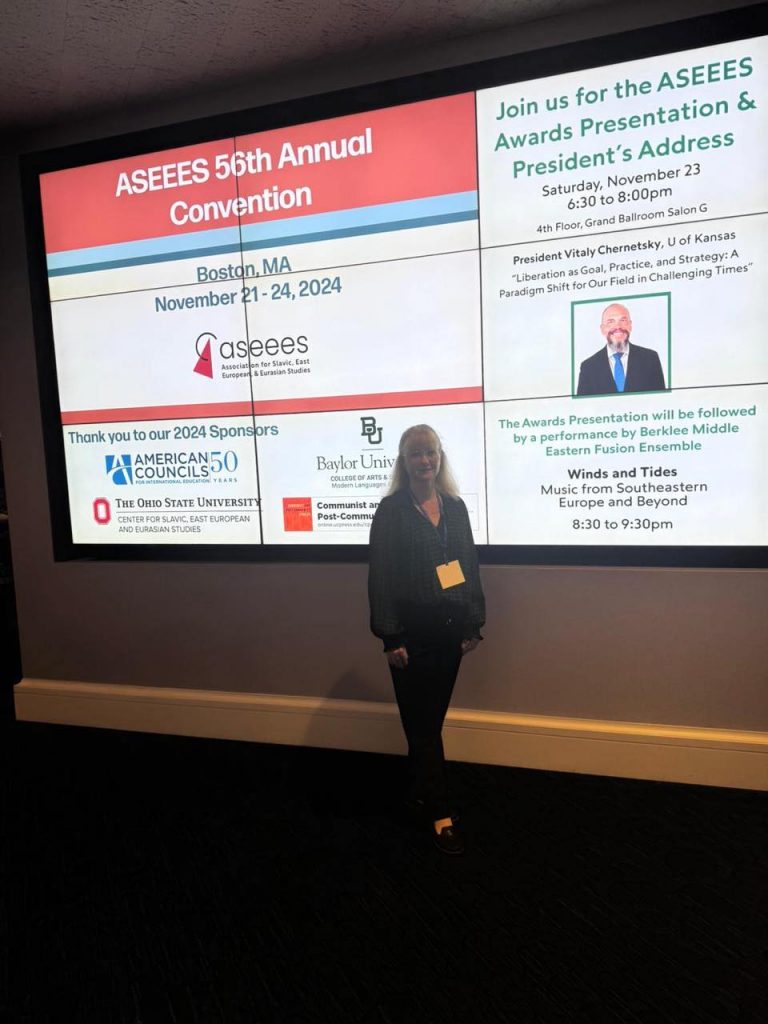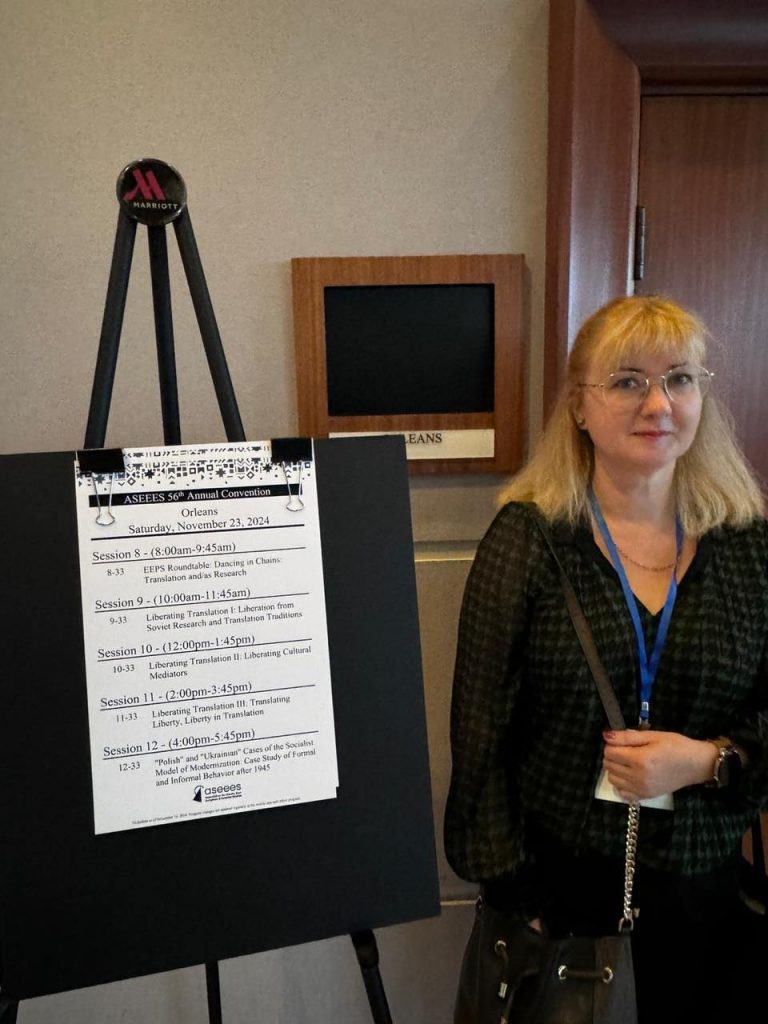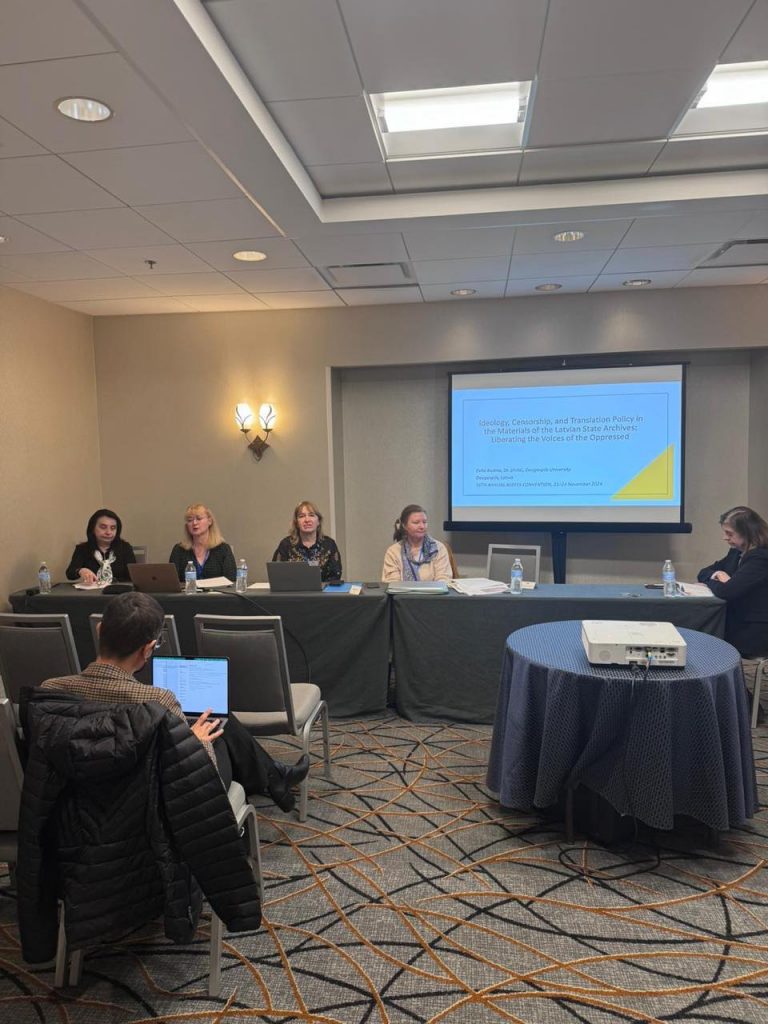In the framework of Daugavpils University’s Research Project Ideology, Censorship, and Text in the Study of Narratives: The Experience of Soviet Latvia (application No. 14-95/2024/16), from November 21–24, 2024, in Boston, MA (USA), Evita Badina, a researcher at the Institute of Humanities and Social Sciences of Daugavpils University, participated in the 56th Annual ASEEES (Association for Slavic, East European, and Eurasian Studies) Convention, themed Liberation.
The convention is widely recognised as a leading academic event in the field. It offers an exceptionally broad scope with over 630 sessions, including panels, roundtables, meetings, film screenings, and literary events. This year’s program showcased various topics, from politics, history and architecture to literature, culture, and the social sciences. It provided a platform for vibrant academic exchange, fostering new approaches to studying culture and literature, particularly under oppressive regimes and in the broader context of liberation.
Evita Badina presented her report, Ideology, Censorship, and Translation Policy in the Materials of the Latvian State Archives: Liberating the Voices of the Oppressed, as part of the panel session Liberating Translation II: Liberating Cultural Mediators. The session brought together scholars who presented their findings on literary translation during the Soviet era, drawing from Ukrainian and Latvian sources to examine the impact of ideological control, censorship policies, and the bans imposed on translators as cultural mediators. Badina’s report, based on materials from the Latvian State Archives, explored how translators navigated these restrictions and contributed to cultural mediation.
The session inspired engaging discussions among international scholars, highlighting the significance of translation as both a tool of ideological influence and a means of cultural resistance.
More information:
Evita Badina, Dr. philol.
Researcher at DU Institute of the Humanities and Social Sciences
e-mail: evita.badina@du.lv


